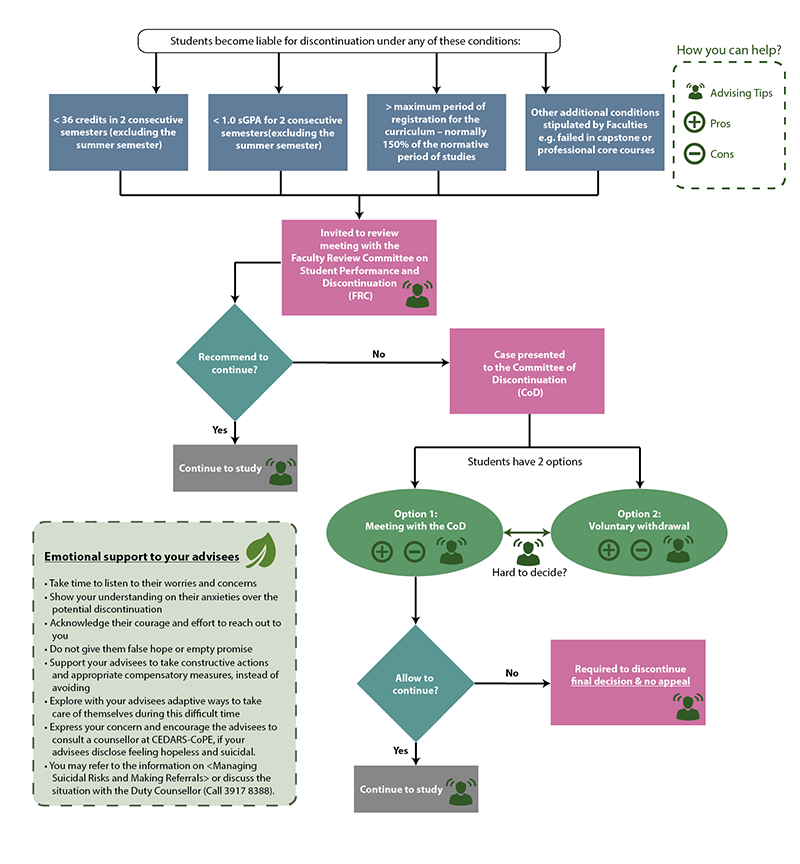Oftentimes, students would experience difficulties in their university studies. Some difficulties are adjustment in nature and may resolve in one semester or two. However, some students might encounter prolonged problems of more serious nature which, if not tackled promptly, might impede their study progression at the University.
Conditions for Discontinuation of studies
There are, in general, four conditions under which a student shall be recommended for discontinuation of studies:
- Failed to obtain a minimum of 36 credits in two consecutive semesters not including the summer semester (except when students are not required to take this number of credits);
- Failed to achieve an average semester GPA of at least 1.0 for two consecutive semesters not including the summer semester; or
- Exceeded the specified maximum period of registration for the curriculum – normally 150% of the normative period of studies.
- Some Programmes have additional conditions for discontinuation e.g. failed in capstone or professional core courses.
Common Problems
From our experience, these students often have underlying problems which can be both study and non-study related. These may include weak academic abilities, inability to balance study and activities, lack of interest in the subject(s), loss in direction, sense of failure/shame/guilt (especially top students in high school or entrance scholarship holders), passive help-seeking behavior, mental or physical health problems, financial and family issues.
The Review Process at Faculty and University levels
Normally the students concerned will be contacted to attend a review meeting with the Faculty Review Committee on Student Performance and Discontinuation (FRC). Depending on the outcome of the review, some students may be recommended for discontinuation and required to present themselves in the Committee of Discontinuation (CoD) meeting. The decision of CoD will be final and there is no appeal against the decision.
How you can support your advisees academically and emotionally
Most students, under this circumstance, would feel overwhelmed by fear, anxiety and/or confusion how to face and handle the situation. Some of them would choose not to read any emails, letters or receive calls from the University – which may lead to even more negative and irreversible outcomes. As their FAA, you can help them make a positive turn by providing timely advice throughout the process as well as referring them to different offices/units for the needed support.
Below is a flowchart diagram which illustrates the processes that your advisees may go through, their options and advice they need from you at different stages.
As adults, your advisees are fully responsible for their future. Your role is to support them in making a well-considered decision and plan. Due to various reasons, some students may not disclose their difficult situation to their parents/family members. You may discuss this with your advisees so that they could receive every possible support and guidance to plan their future. Specific questions about your advisees should be directed to your Faculty Office.
Prepared by Academic Advising and Scholarships Office, with support from the Committee on Discontinuation and CEDARS-Counselling and Personal Enrichment (CEDARS-CoPE)





